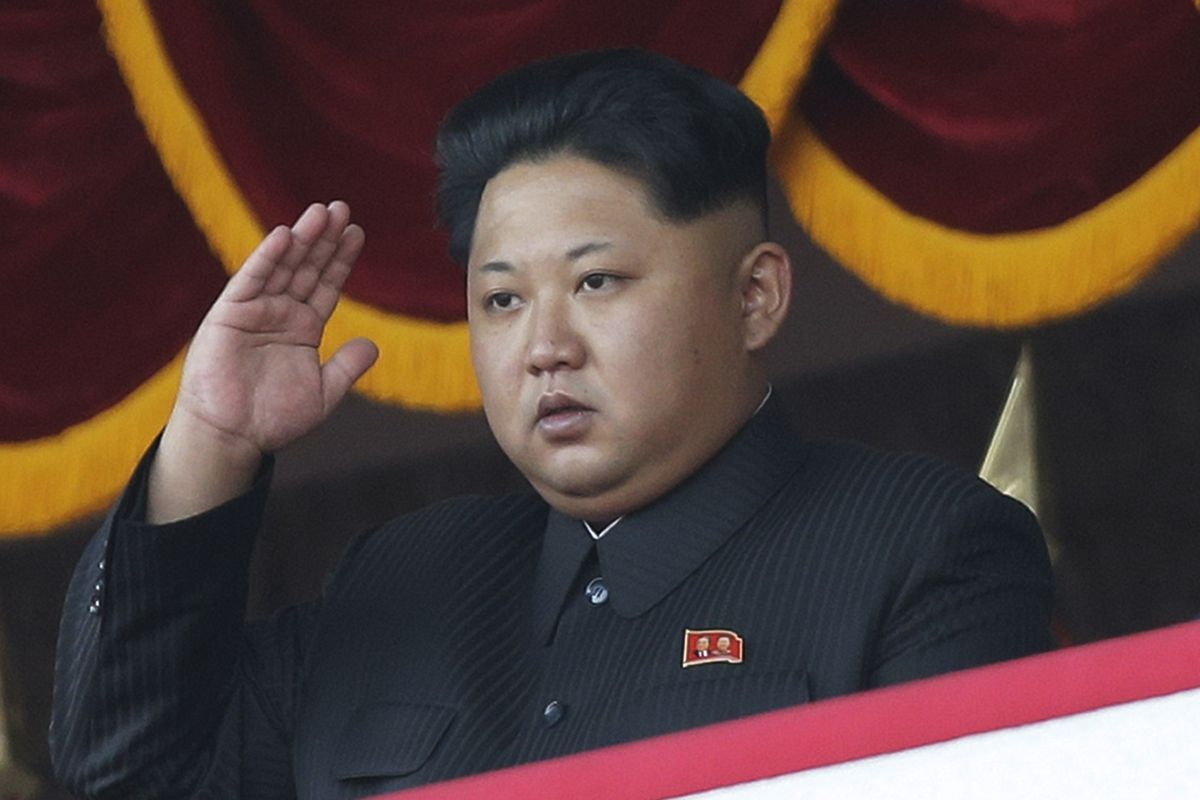U.S.-DPRK relations to be Trump's biggest 2018 foreign policy challenge, experts say

-By Matthew Rusling
WASHINGTON, Washington's relations with Pyongyang are expected to be U.S. President Donald Trump's greatest foreign policy challenge in 2018, as tensions continue to simmer between the two nations, U.S. experts say.
"North Korea is going to be Trump's biggest foreign policy challenge in 2018," Darrell West, a senior fellow at the Washington-based think tank the Brookings Institute, told Xinhua.Tensions on the Korean Peninsula are at a high point not seen in several years, as Trump wants Pyongyang to halt development of a nuclear weapon that could hit the United States, while the Democratic People's Republic of Korea (DPRK) believes that having a nuclear weapon is the only way to defend its government from the United States.
"The president has raised the stakes by staking out a clear position on no nuclear weapons for North Korea and severe limits on missile testing. This year very well could be the time that, unless there is a diplomatic breakthrough, he takes decisive action on these goals," West said.
"That could involve targeted military strikes or a full-scale embargo on North Korea. Either way, it will be a dramatic time with lots of consequences for many countries around the world," West said, referring to 2018.
As Trump has repeatedly said that military options remain on the table, many analysts view Trump as unpredictable and it remains unknown which course of action the U.S. president will take.
"Each course has major risks, but Trump appears to have concluded that maintaining the status quo is not an acceptable alternative. He has indicated he is open to many different options, including military strikes on North Korea's launch capabilities. He seems very serious about resolving this issue this year," West said.
In his New Year speech, DPRK leader Kim Jong Un sent a reconciliatory message that his country was willing to participate in the South Korea-hosted winter sports event. The following day, Seoul offered to hold a dialogue on Jan. 9 with Pyongyang at the Peace House in the truce village of Panmunjom, which straddles the heavily guarded inter-Korean land border.
However, skeptics in the West and South Korea said that the Sunshine Policy of a decade ago, which promoted warmer relations between the two Koreas, failed to halt Pyongyang's nuclear progress. In the same speech, Kim threatened that the DPRK is capable of striking the United States with nuclear weapons at any moment. Trump returned fire earlier this week, saying: "I too have a Nuclear Button, but it is a much bigger and more powerful one than his."
Despite Pyongyang's willingness to talk to its southern neighbor, experts say the DPRK will not be letting go of its nuclear weapons program anytime soon.
"Though we cannot rule out a preventative strike against North Korea entirely, the threat of a messy war in East Asia that shoves the world back into economic recession is a steep price to pay," said Rodger Baker, Vice President of Strategic Analysis at Stratfor, a geopolitical intelligence group. The year 2017 saw tense relations between Trump and Kim, with the two leaders exchanging barbs, insults and threats. Analysts expect this year to be no different, adding that 2018 may be a decisive year regarding tensions on the Korean Peninsula.
But analysts cautioned the two leaders to cool their anger toward each other, fretting that the bluster could lead down a dangerous path of no return. Dan Mahaffee, senior vice president of the non-profit Center for the Study of the Presidency and Congress, said Trump's statement about the nuclear button is a dangerous example of this bluster between the two leaders.
"While President Trump intended to sound tough - responding directly to Kim's statement about his nuclear capabilities and highlighting how the U.S. arsenal, conventional and nuclear, is much stronger - this bluster is seen by many as juvenile and dangerous," he said.
Others, however, believe that Trump's comments about the nuclear button are more rhetorical. "Trump is trying to remind him that the United States remains far and away the stronger military power and that its new nuclear power does not give it the ability to push Washington around," Troy Stangarone, senior director at the Korea Economic Institute, told Xinhua.Enditem
---



Leave Comment